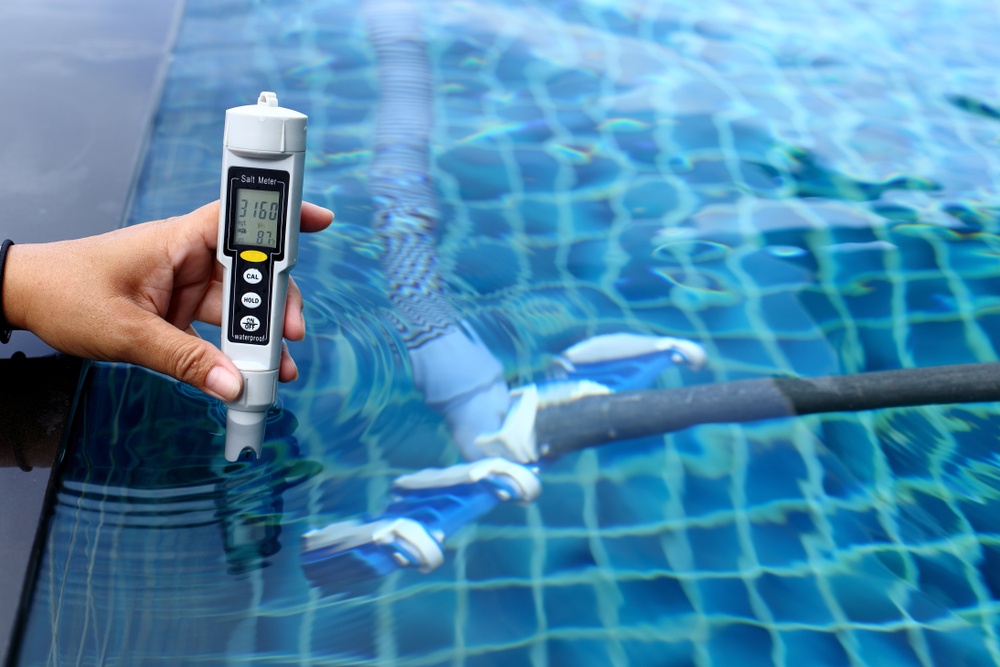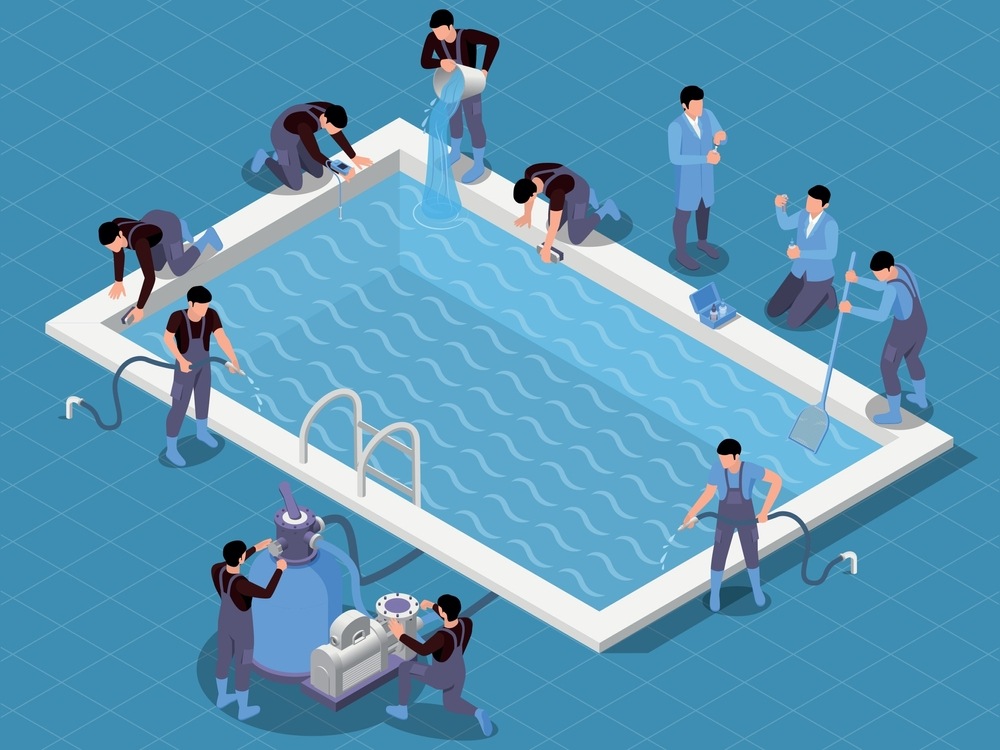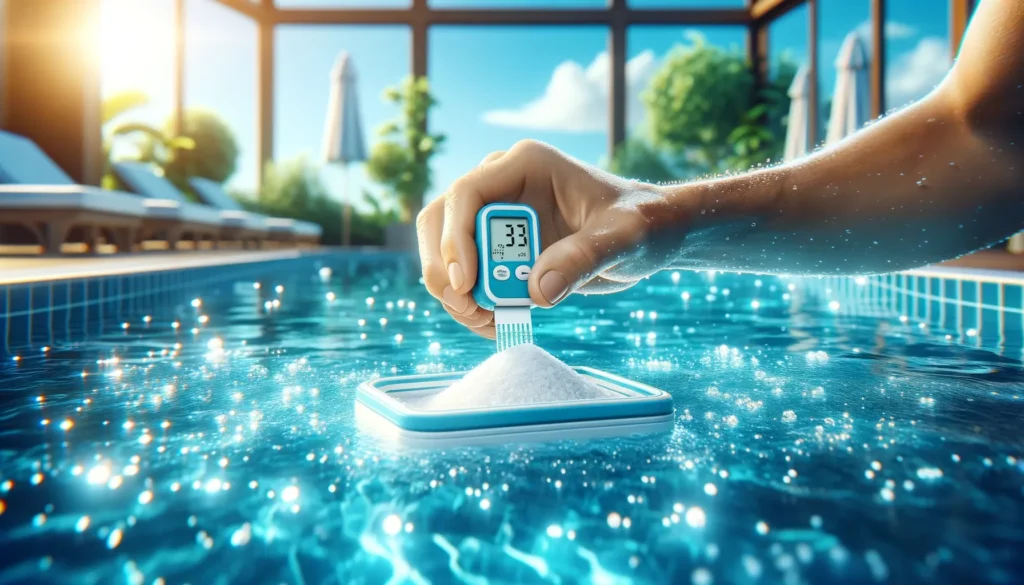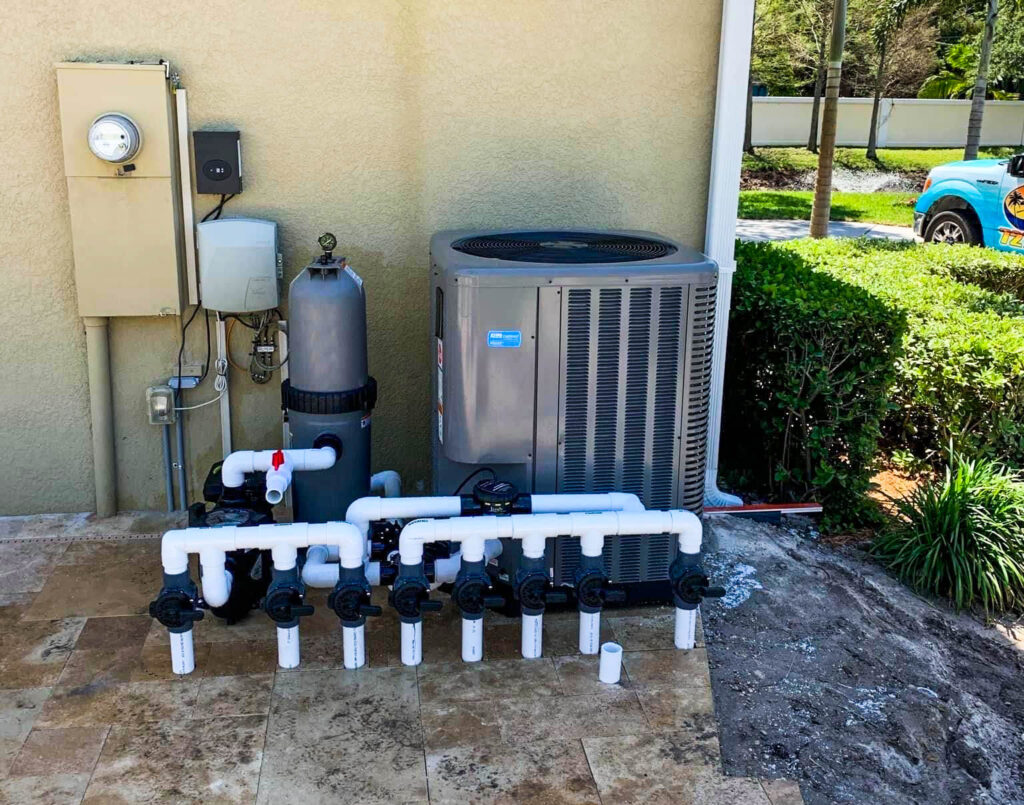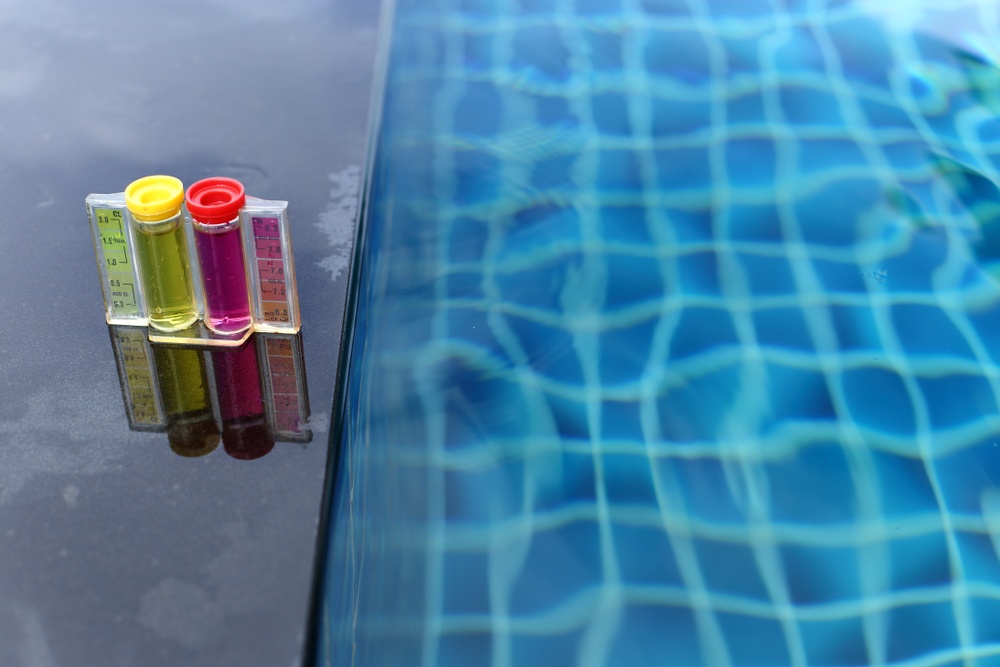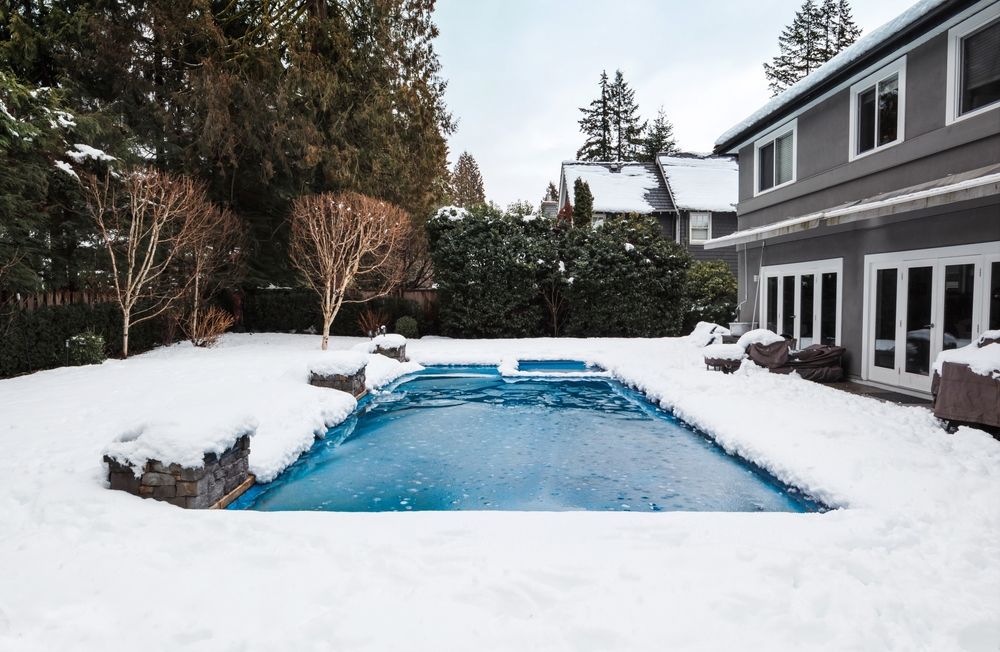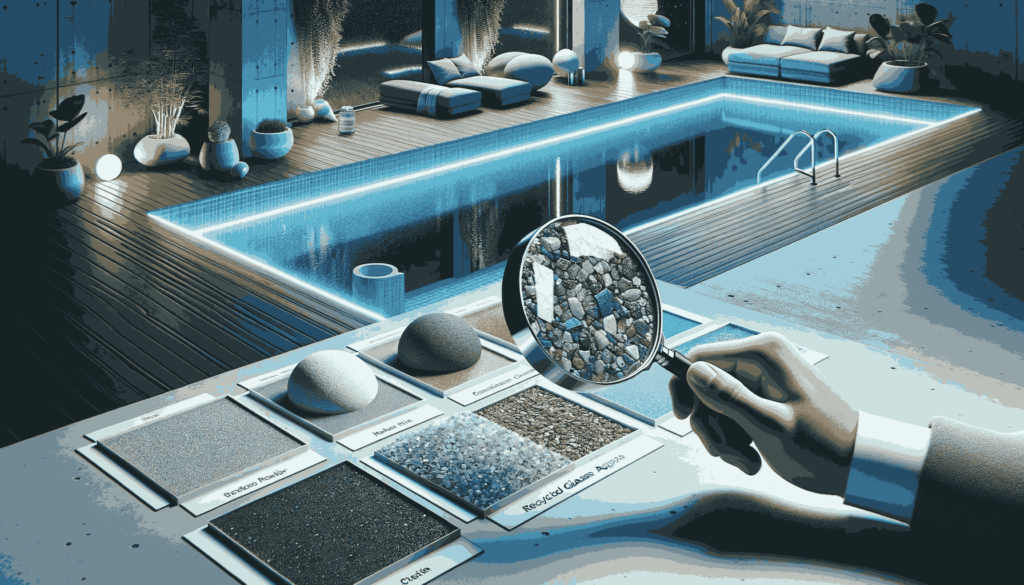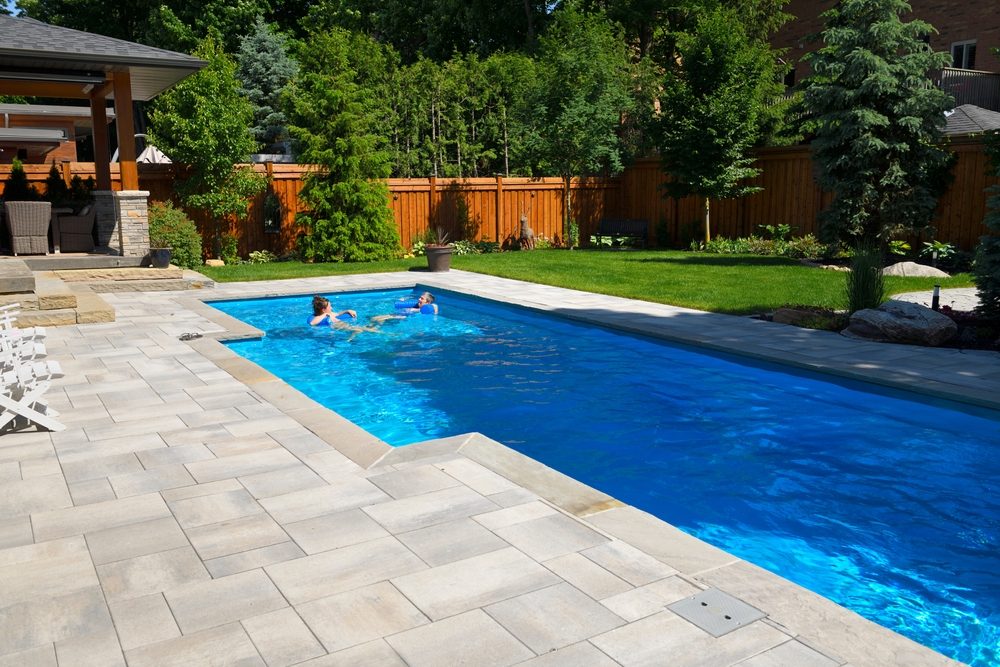Pool Maintenance and Care
You can look forward to many hours of enjoyment and splashing around as the proud owner of a brand-new pool! But immense fun is accompanied by immense responsibility. To maintain your pool in good shape for many years of enjoyment, you’ll need to invest some time into its upkeep.
Do not worry if you are unfamiliar with maintaining a pool. We provide you with resources that illustrate the best practices for basic pool maintenance, such as how to maintain appropriate water balance, clean and clear algae from your pool, shock your pool, and winterize it.
When Should You Service and Inspect Your Pool?
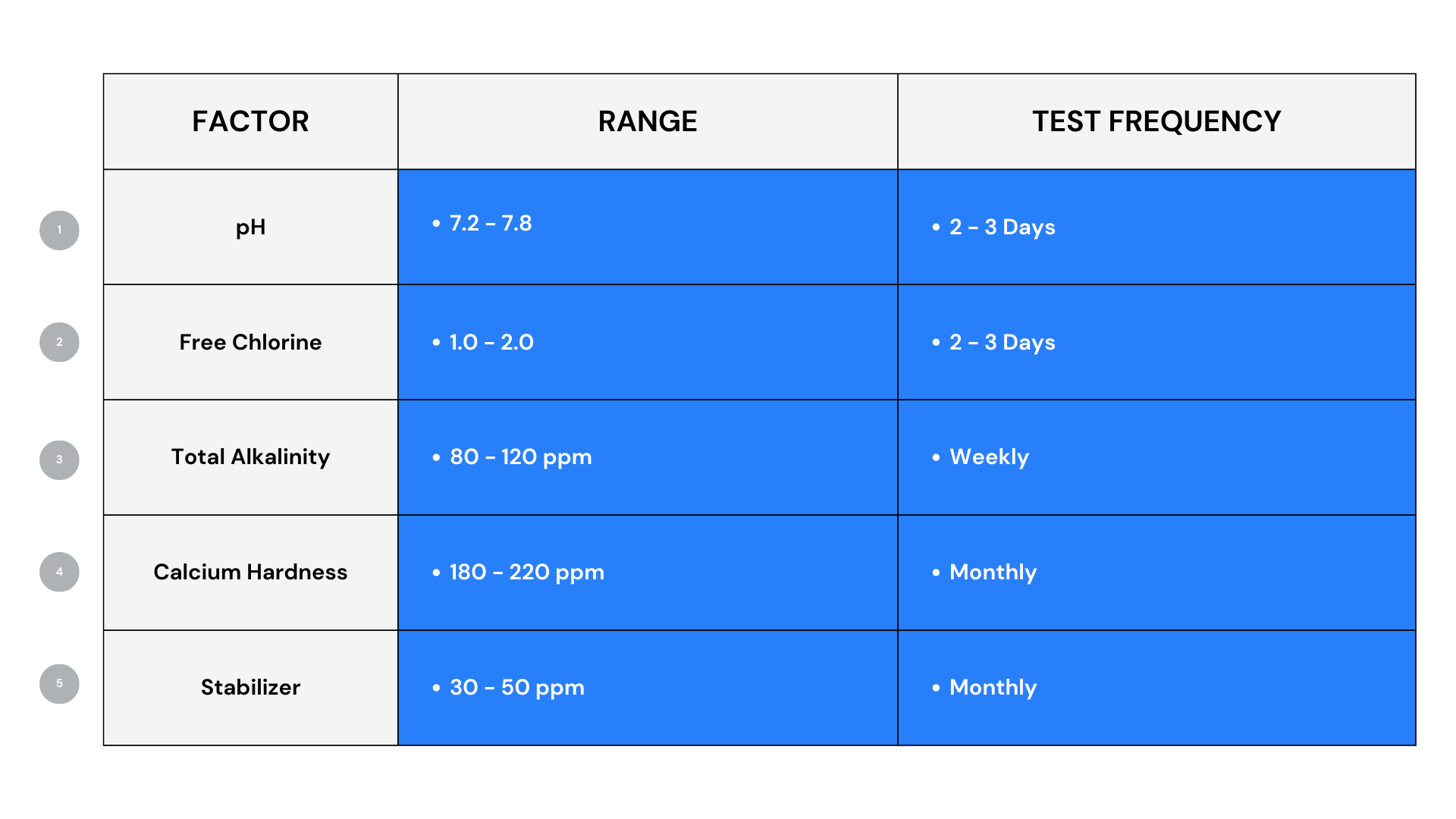
For any swimming pool to look its best and last as long as possible, proper water balance is the single most important factor. It’ll be easier to maintain your pool properly if you check the water levels often. The ranges for basic water chemistry are displayed in the opposite table along with suggestions for testing frequency. To maintain your water chemistry at its best, it’s always a good idea to have a qualified pool specialist check your water levels once a month.
Learn More About Pool Maintenance
Important Pool Maintenance Terminology
Many people are unfamiliar with the chemicals and terminology involved in pool maintenance. Here are a few common yet crucial definitions related to pool maintenance.
The pH scale, which ranges from 0 to 14 with 7 representing neutrality, is used to determine how acidic water is. Appropriate pH values not only enable the other chemicals to function, but it’s crucial to remember that both low and high pH values can harm a vinyl liner.
- Low pH Levels: Water with a pH of less than 7.0 is extremely acidic. In the proper conditions, a pH lower than 7.0 can cause the liner to grow and wrinkle unsightly.
- High pH Levels: Water turns extremely basic (alkaline) as the pH gets closer to 8.0. Elevated pH significantly hastens the aging process and reduces the liner’s lifespan. At higher pH values, chlorine is likewise far less effective. Furthermore, at higher pH values, chlorine is far less effective. Only 22% of chlorine is effective at a pH of 8.0.
Improper pH levels can lead to the vinyl liber absorbing water, causing it to expand. This can create wrinkles. It’s the same concept as spending too much time in the bathtub and your fingers become pruned and wrinkled!
The amount of alkaline substances dissolved in water is measured as alkalinity. The optimal range of 100 to 150 ppm alkalinity aids in the pH’s resistance to changes. Low alkalinity can result in a “pH bounce,” where the pH level swings in and out of the range that is considered safe.
The term “calcium hardness” describes how many minerals are dissolved in water. Corrosion of the pool’s surface, filter, heater, ladder, etc. can result from low hardness. An excessively high calcium hardness level results in scaling, or a white, chalky look in the water.
Metals, also referred to as free metals, are frequently found dissolved in pool water. They typically originate from source water, but they can also occur from metal pool fixtures like heater cores eroding.
The presence of free metals in pool water can discolor pool surfaces and reduce the effectiveness of water sanitizers. The ideal level of metals in the water is zero parts per million. In the event that metals are found in your water, a sequestering agent will be required to make them inert.
YOU'RE NOT IN THIS ALONE
We are with you every splash of the way
Need a pool fix or looking for an upgrade? We’re just one click away to help with all your pool needs.

